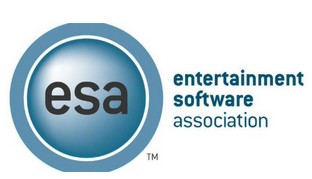| Video Game Publishers Are Against Preserving Abandoned Games |
| Written by David Conrad | |||
| Friday, 10 April 2015 | |||
|
The situation with respect to the Digital Millennium Copyright act and the preservation of computer games and other software is clear - you can't do it. The EFF asked the Copyright Office for an exemption, but the ESA has objected because all "Hacking" is illegal.
A direct response is that this is intolerable. How can big business stop you from playing games that you paid for and own? How can big business stop digital archeology and bury the history, our history, of gaming? It is true that something is not right but the actual situation is a little more complicated. The EFF (Electronic Frontier Foundation) presents the argument as big bad business is simply protecting itself at the expense of your freedoms and indeed it is. Unfortunately in many case you already gave away your freedoms some time ago. Most software including games are licensed not sold outright. You don't own a game you simply have permission to play it. If the company that sold you the licence stops supporting it then you have few rights. You certainly don't have the right to do what you will with the code to restore the software to a working state and, since section 1201, you don't even have the right to try and find out how to do it. Then we have the problem of defining what an abandoned game is. You need a good legal definition that distinguishes between a game that has just been replaced by a better version and one that really has been abandoned by its creator. In particular, the ESA (Entertainment Software Association) argues that simply turning off the servers is not the same as abandoning a game. The intellectual property still belongs to the company that created the game.
These and many more objections are raised by the ESA in its response to the request from the EFF. Many of the objections come down to encouraging hacking even for research is bad because as the EFF report: "...it’s not surprising that ESA (the trade association for the largest game producers), along with MPAA and RIAA, have written to the Copyright Office to oppose this exemption. They say that modifying games to connect to a new server (or to avoid contacting a server at all) after publisher support ends—letting people continue to play the games they paid for—will destroy the video game industry. They say it would “undermine the fundamental copyright principles on which our copyright laws are based.” ESA also says that exceptions to Section 1201’s blanket ban will send a message that “hacking—an activity closely associated with piracy in the minds of the marketplace—is lawful.” Imagine the havoc that could result if people believed that “hacking” was ever legal! " The big problem is that all of this hinges on what "hacking" means. If you take it to mean creative programming, then the ESA's comment is simply wrong and offensive. If you take it to mean reverse engineering then the ESA might have a point. It really is a matter of which side of the fence you are on and as programmers we are on both sides! When we create a program there is the sense of ownership - even if you release it as open source you still don't want people to steal the credit. As software users we also have a sense of ownership of the software we buy - even if it is mostly licensed to us. After all this is said, most people can't help feel that there is something wrong with section 1201. It does nothing to stop real criminal "hacking" and yet it criminalizes reverse engineering carried out in the comfort and privacy of your own home - or own museum or ... It probably isn't section 1201 that is at the root of the problem, however; it is the acceptance of software licensing for server supported software. Who reads and takes notice of the EULA? In today's world you generally don't own software and when the company decides to take it away you have no rights or freedoms to get it back. This didn't matter so much back in the days when Microsoft first decided to license its Basic interpreter rather than sell it outright - because you got the binary and that was a hard thing to take away. It matters today because most software is cloud supported and, while it is still hard to take away the binary, it is easy to take away the binary's cloud support. In fact today the same is true of hardware as well as software - how many IP cameras, thermostats and other IoT devices are completely dependent on cloud support?
The problem that the EFF is confronting is just the tip of the iceberg.
More InformationLong Comment Regarding a Proposed Exemption Under 17 U.S.C. 1201 (pdf) Related ArticlesEFF Asks For The Right To Access Software Fear And Loathing In the App Store 9 - The EFF Refuses Apple's Conditions Supreme Court Seeks Guidance On API Copyright Issue Computer Scientists Petition Supreme Court Over API Copyright Scriptkitty Dreams - Rights for Programmers!
To be informed about new articles on I Programmer, install the I Programmer Toolbar, subscribe to the RSS feed, follow us on, Twitter, Facebook, Google+ or Linkedin, or sign up for our weekly newsletter.
Comments
or email your comment to: comments@i-programmer.info |
|||
| Last Updated ( Friday, 10 April 2015 ) |




